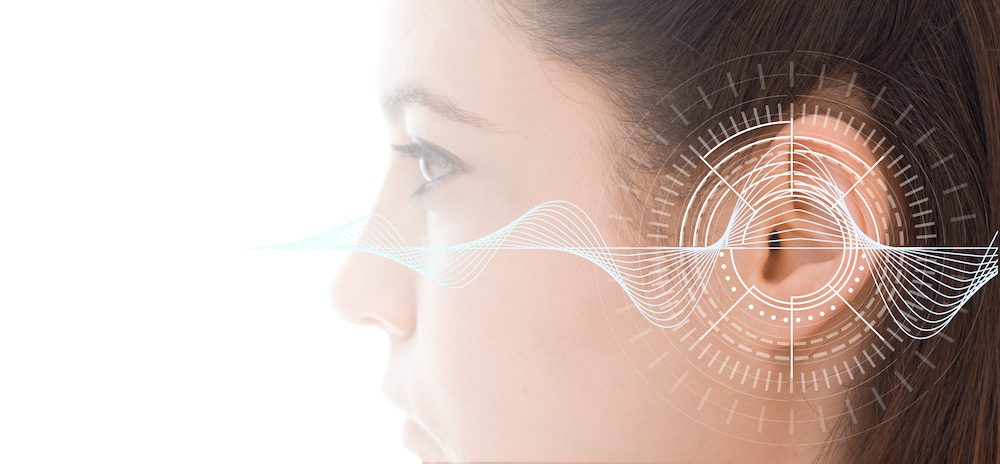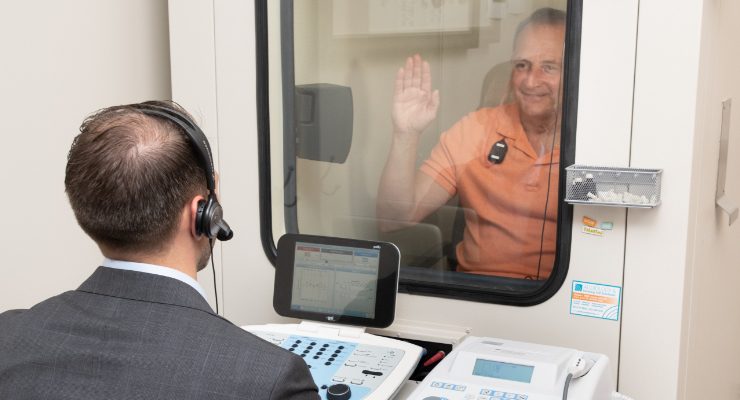
Tinnitus is a well-known hearing condition that many people experience, and that is usually thought of as a ringing in the ears that doesn’t go away.
It’s important to note, however, that tinnitus is not actually a disease, but is rather a symptom or side effect of different conditions that you may be experiencing. It’s also important to clarify that, while tinnitus is typically associated with a ringing sound, it can manifest in different ways, too.
Some people experience tinnitus as:
- A humming noise
- A clicking noise
- A roaring noise
- A buzzing noise
- A hissing noise
Here’s a closer look at the specifics of what tinnitus is, and how it can be treated.
What Actually Causes Tinnitus?
First and foremost, tinnitus is a secondary result of different potential factors, instead of being a disease in and of itself. If you are experiencing tinnitus, it may be as a result of an ear infection, a blockage of your ear of even a medication that you may be on. In most cases, however, tinnitus occurs as a result of hearing loss.
Essentially, tinnitus is thought to occur as a result of the brain filling in the gaps in information that occur as a result of disrupted hearing, with its own noise – or otherwise receiving the wrong signals from the ears or misinterpreting the signals it receives.
In cases of hearing loss, fine hairs within the inner ear which are responsible for transmitting sound waves to the brain are damaged. This then either results in the wrong signals being sent to the brain, or in gaps in hearing – which are then filled in, in the form of tinnitus.
Is Tinnitus Always the Same?
Tinnitus is not always the same – either in the way that different individuals experience it, in the intensity of experience or in how prevalent and ongoing the experience of tinnitus is.
Not only can tinnitus sound different to different people, but it can also range in intensity from being a mild annoyance to a condition which can impact the ability to work and carry out everyday tasks.
Tinnitus also doesn’t necessarily last indefinitely. Some people experience tinnitus coming and going in waves, or even just lasting for a few seconds at a stretch.
In fact, short term and temporary disruptions to your hearing – such as a momentary blockage of your ear canal – can cause you to experience short term tinnitus.
Tinnitus may affect one ear or both, it may be low pitched or high pitched, constant or on-and-off and it may be mild or serious. In any case, tinnitus always points to some underlying cause – so it’s a very good idea to make an appointment with an audiologist if you notice that you are experiencing any degree of tinnitus.
Tinnitus Can Be Treated
Tinnitus can, in many cases, be treated following a consultation with an audiologist. If your tinnitus is occurring as a result of a blocked ear or something similar, then the issue can often be resolved after a relatively straightforward procedure.
In cases where you are experiencing tinnitus as a result of hearing loss, there is a good chance that you will experience either partial or full relief of your tinnitus after being fitted with an appropriate hearing aid by your audiologist.
A properly fitted hearing aid will amplify particular sounds in particular bands that you don’t hear clearly, in order to help your brain to process that sound information as opposed to filling in gaps in perception with tinnitus.
In cases where a hearing aid doesn’t resolve the experience of tinnitus, one option to explore could be a sound masking device which helps to offset and cover up the noise of the tinnitus with a more pleasant external sound.
Sound masking devices can sit behind your ear or can come in the form of tabletop machines – and they can play sounds ranging from white noise to nature sounds, music or other ambient sound effects. These masking devices can create sounds that are just slightly louder than the tinnitus, or that drown out the noise of the tinnitus altogether.
Tinnitus Can Be Prevented
As the primary cause of tinnitus is hearing loss, taking steps to protect your hearing can likewise often prevent tinnitus from developing in the first place – or can prevent it from becoming stronger over time.
Good general practices for safeguarding your hearing include:
- Always using high quality ear protection when you are in a situation where you are exposed to loud noises, such as at concerts or when working in an industrial setting.
- Avoiding high volume settings when using headphones or earbud devices to listen to music or films.
The audiologists at Audiology & Hearing Aid Solutions are experts at treating tinnitus. If you’d like a walkthrough of potential treatment options, give our office a call at 888-473-8702.



